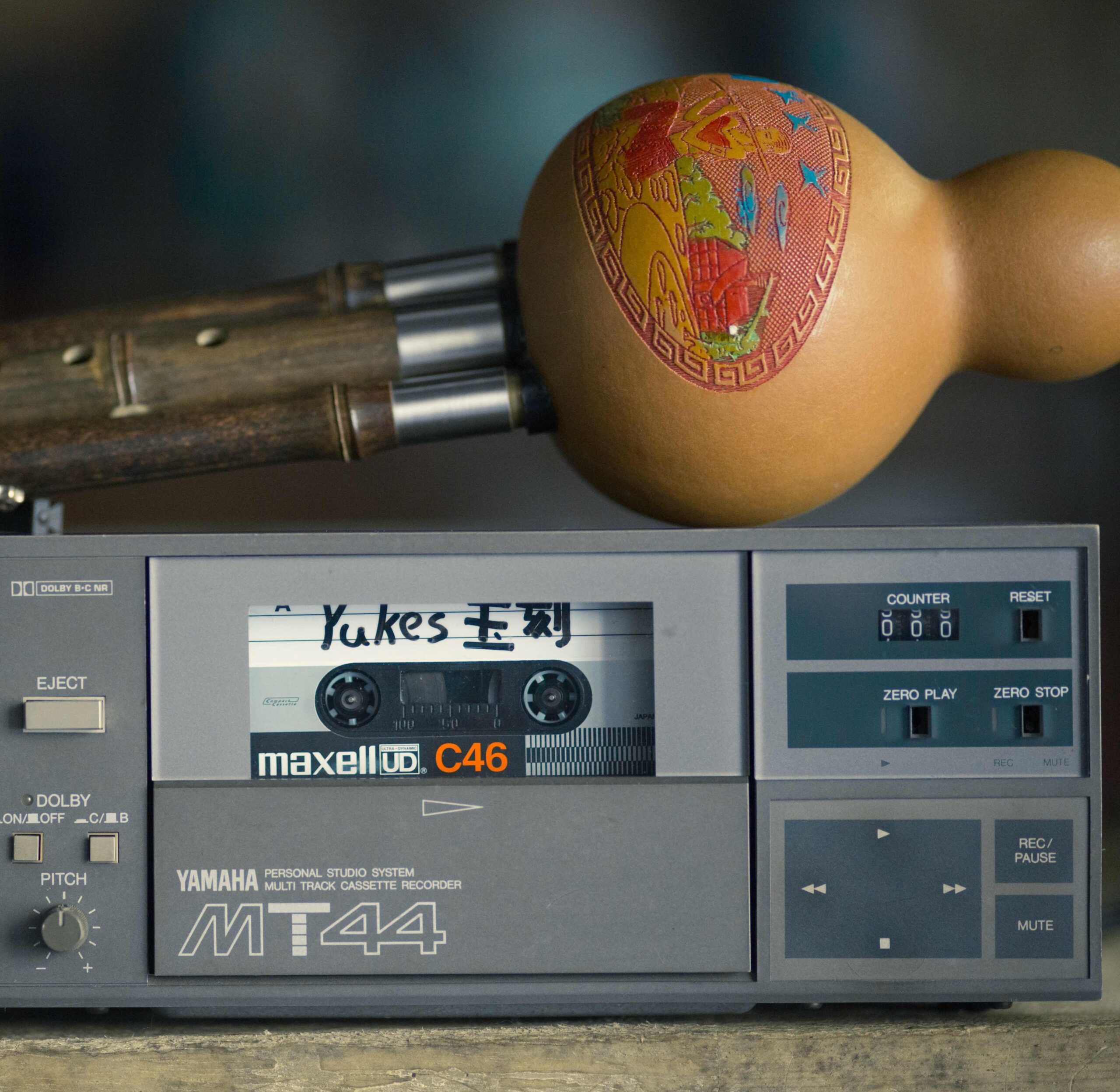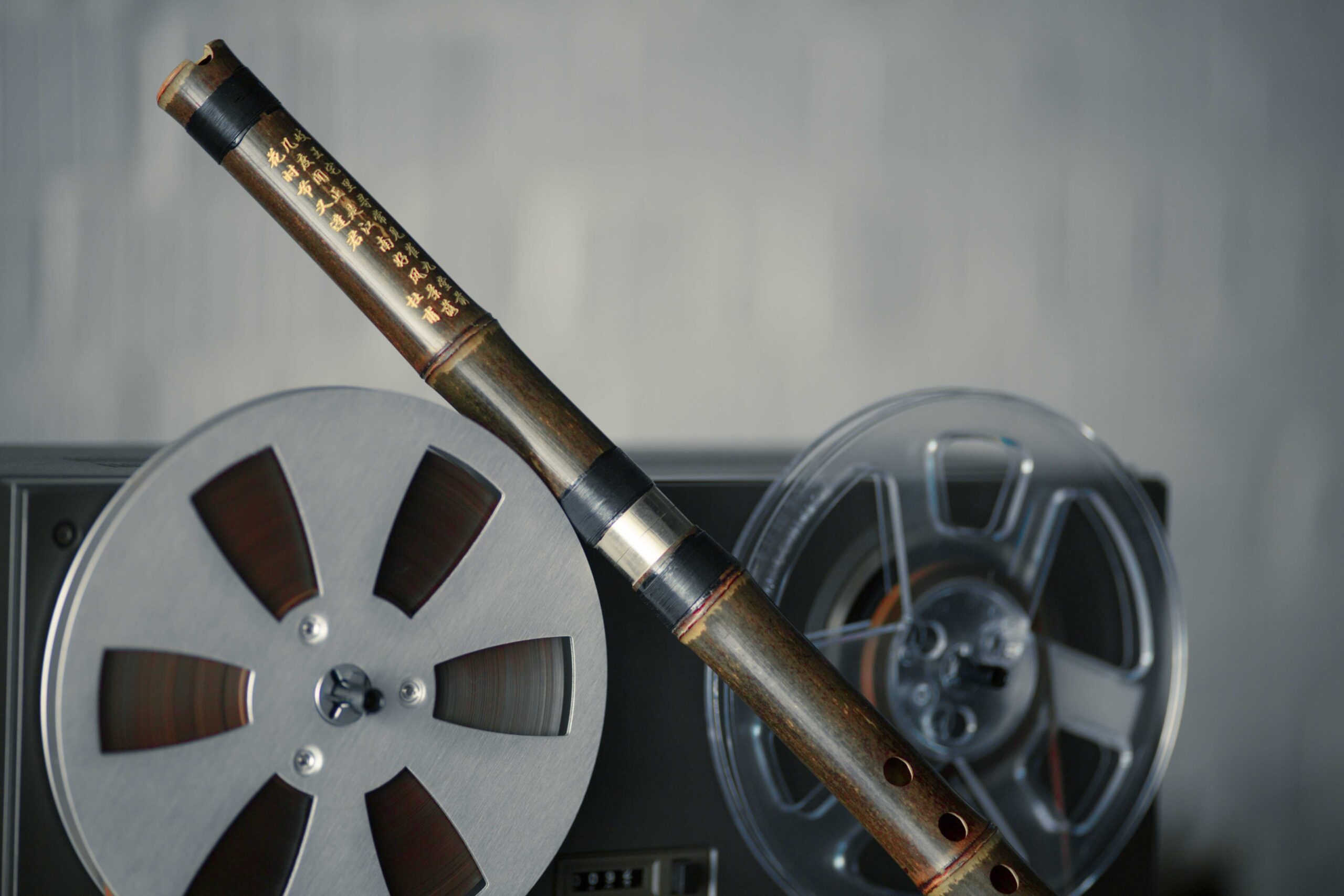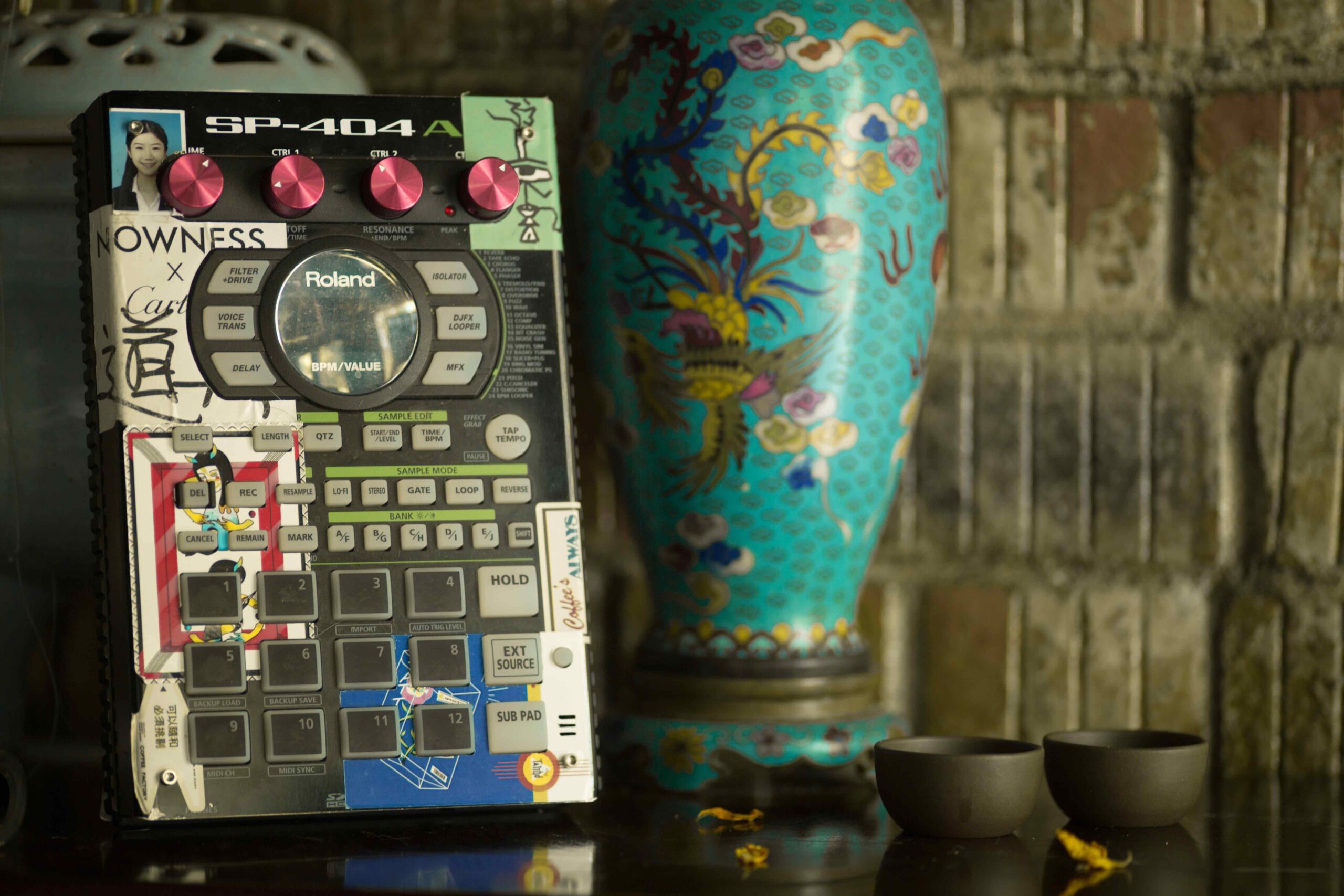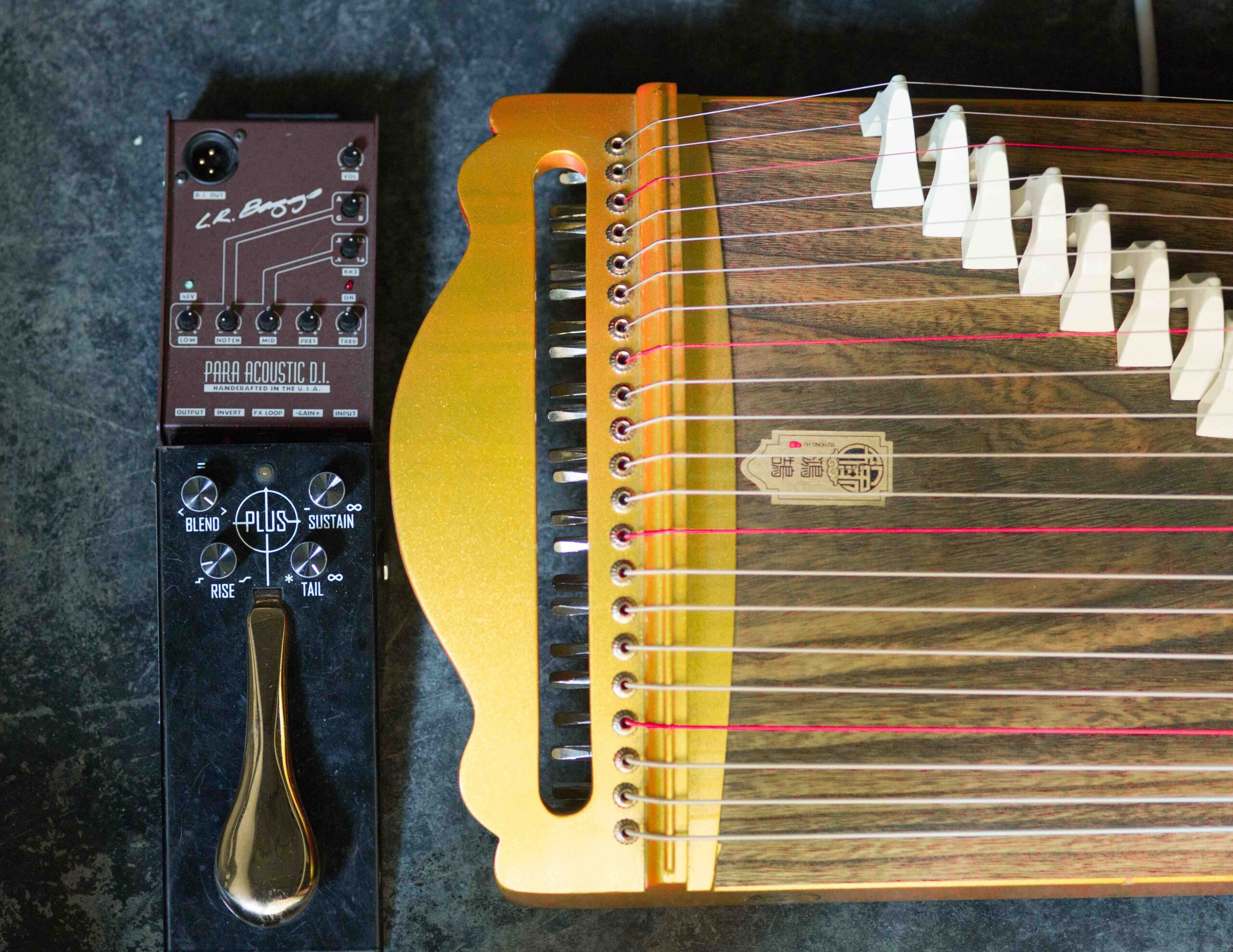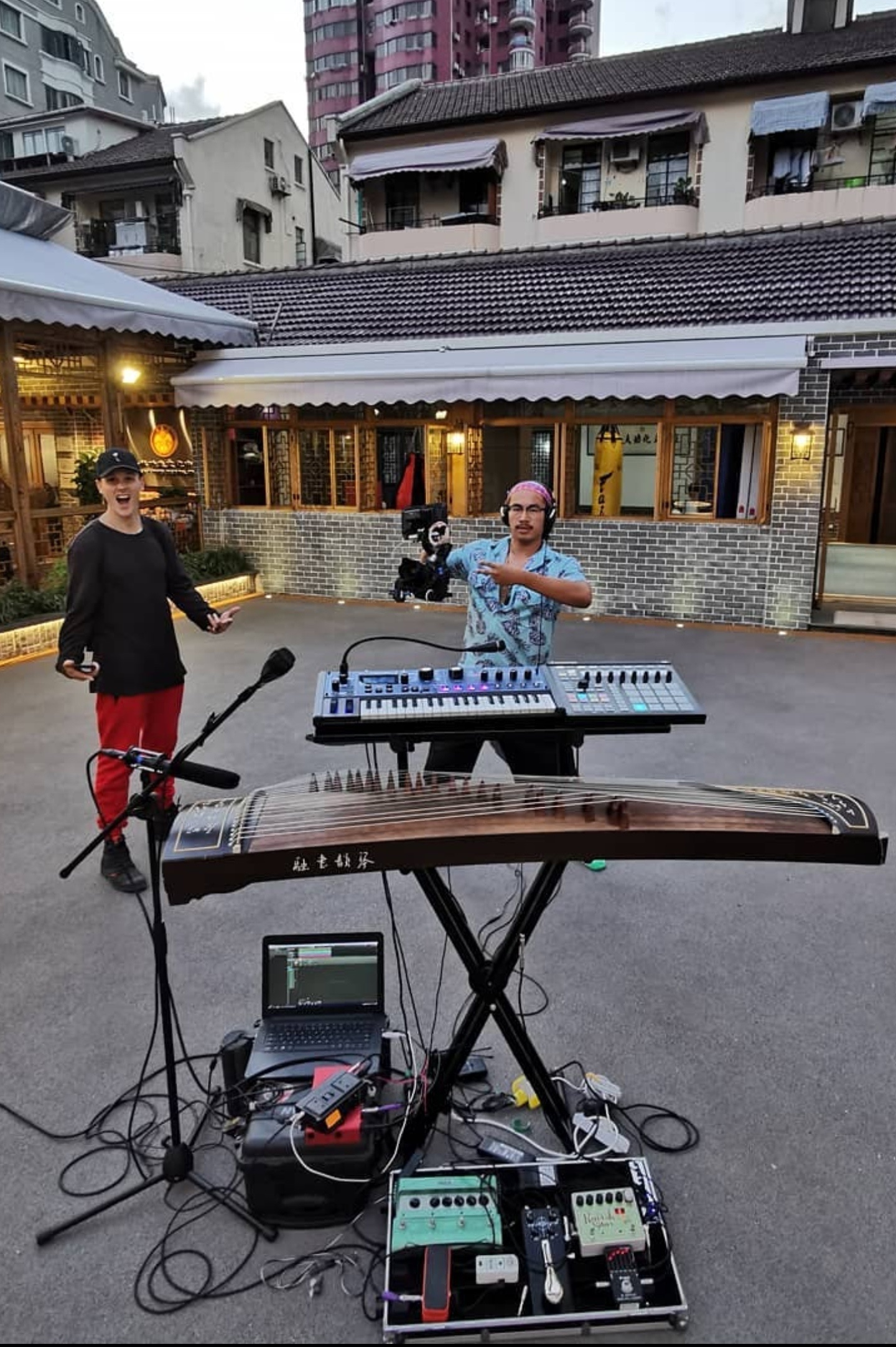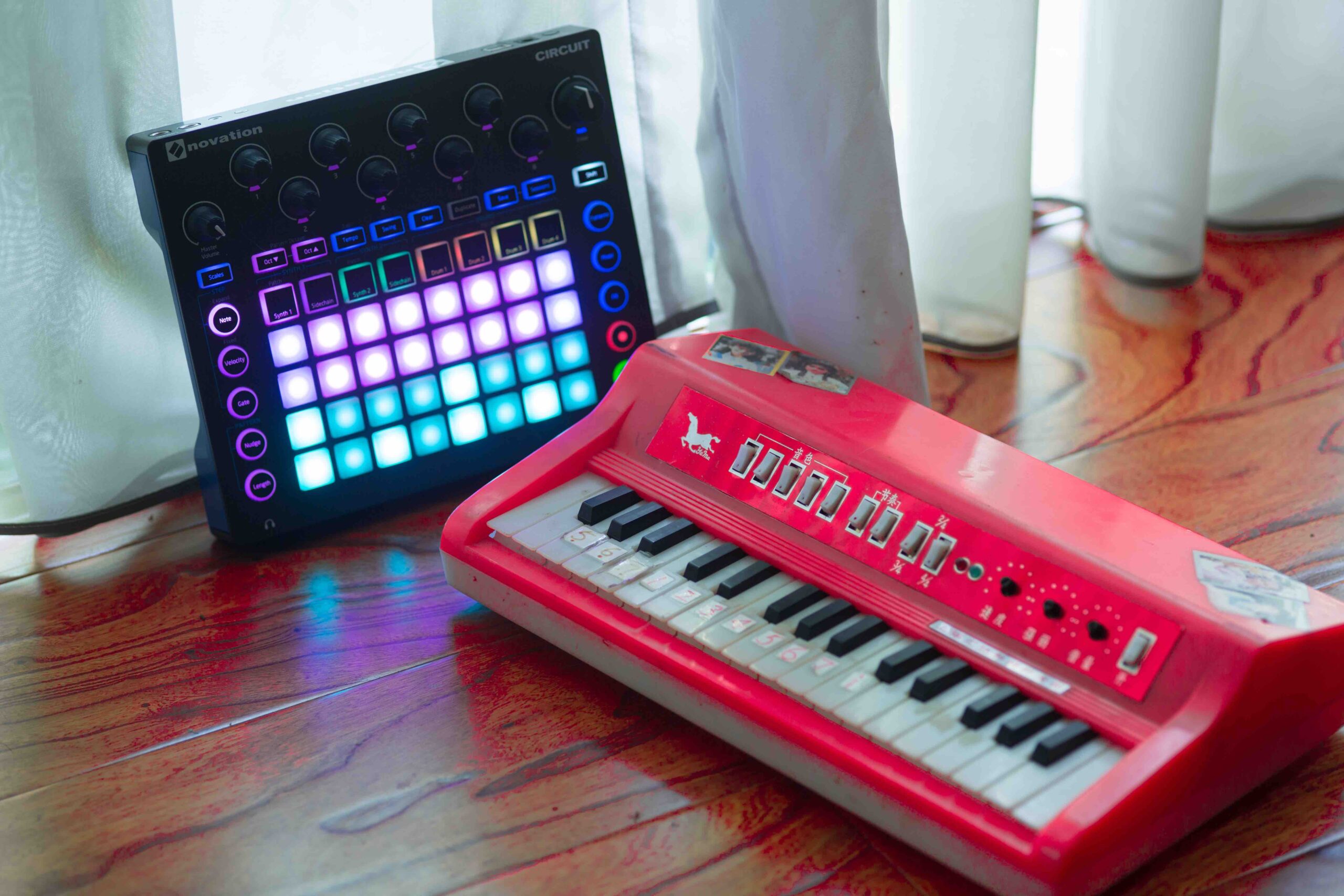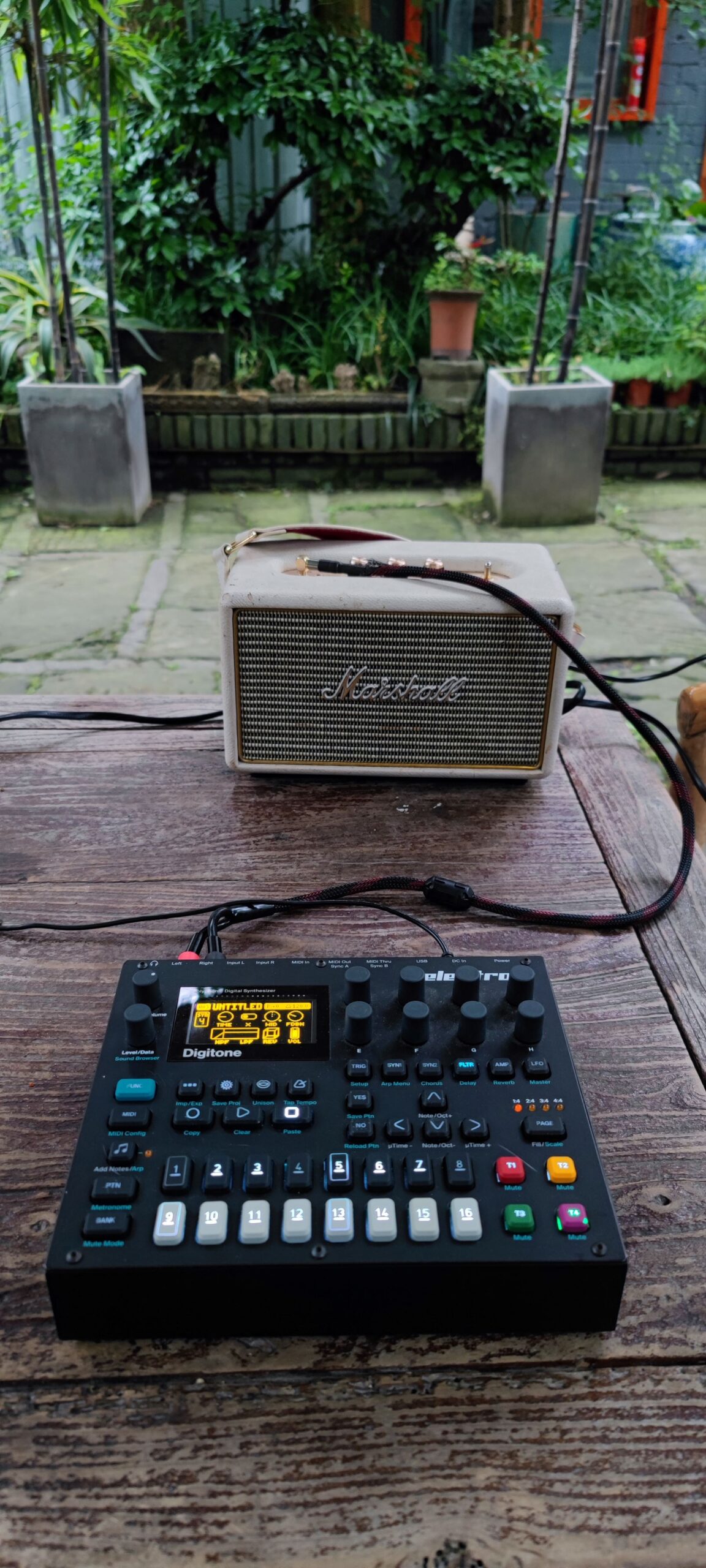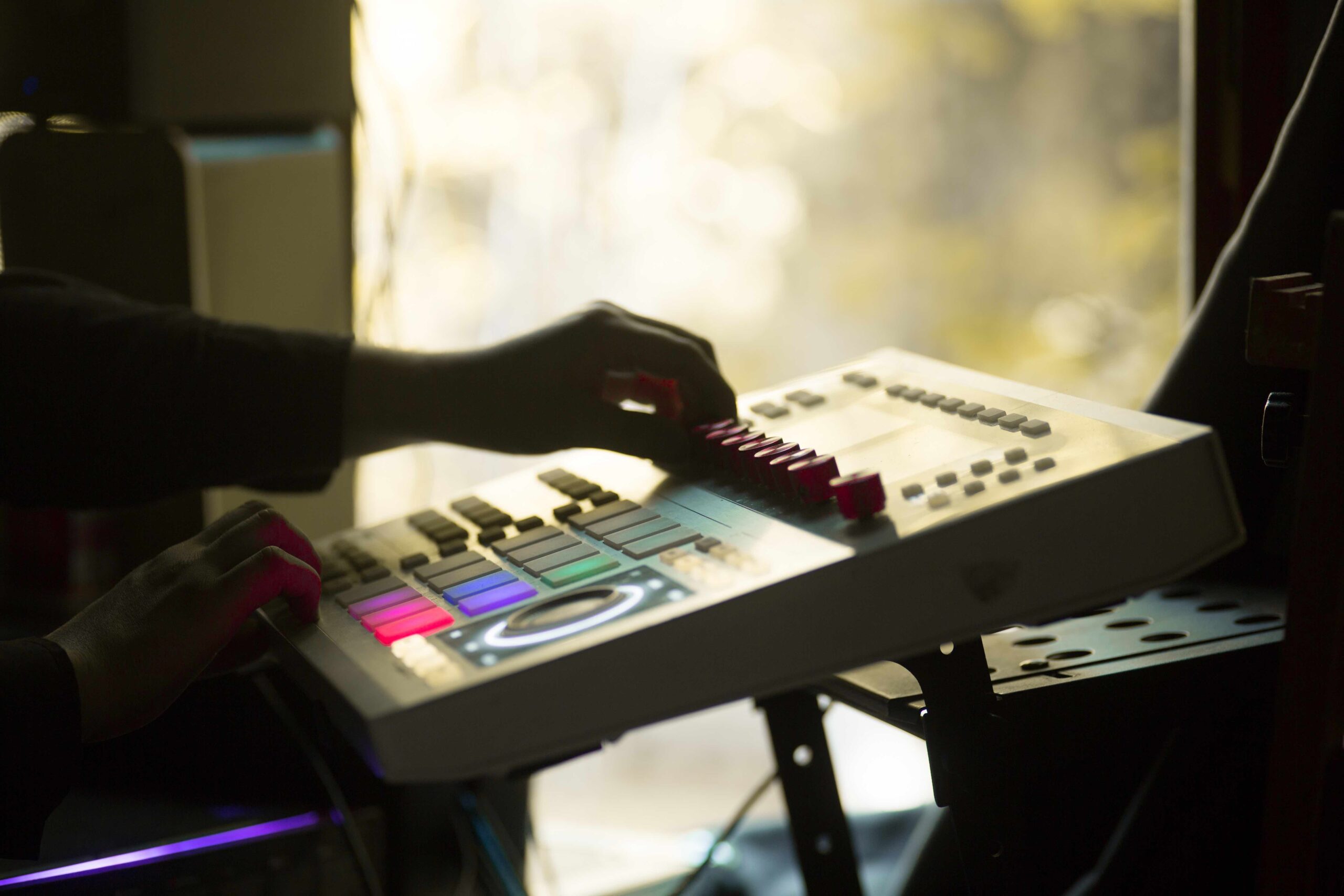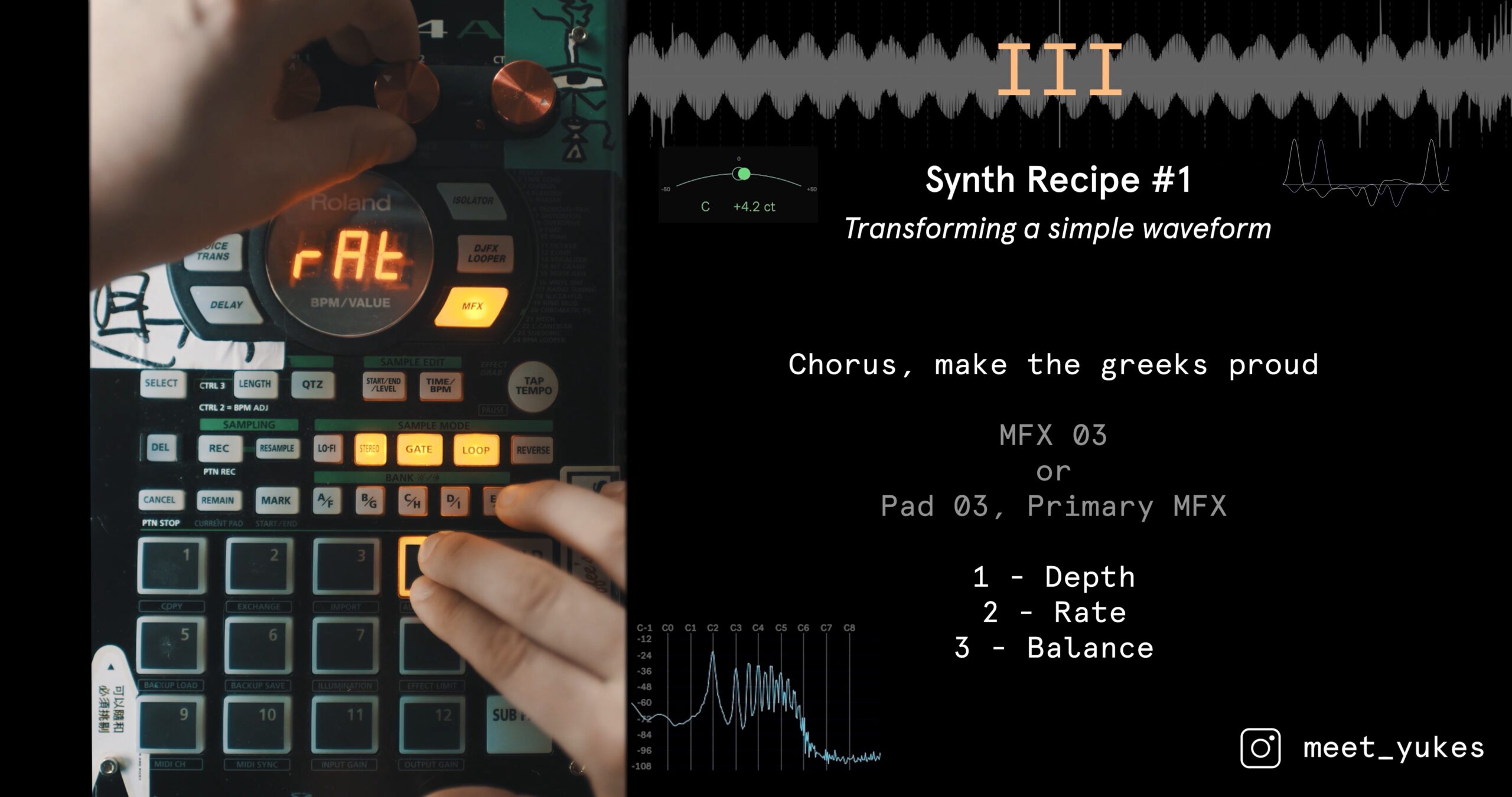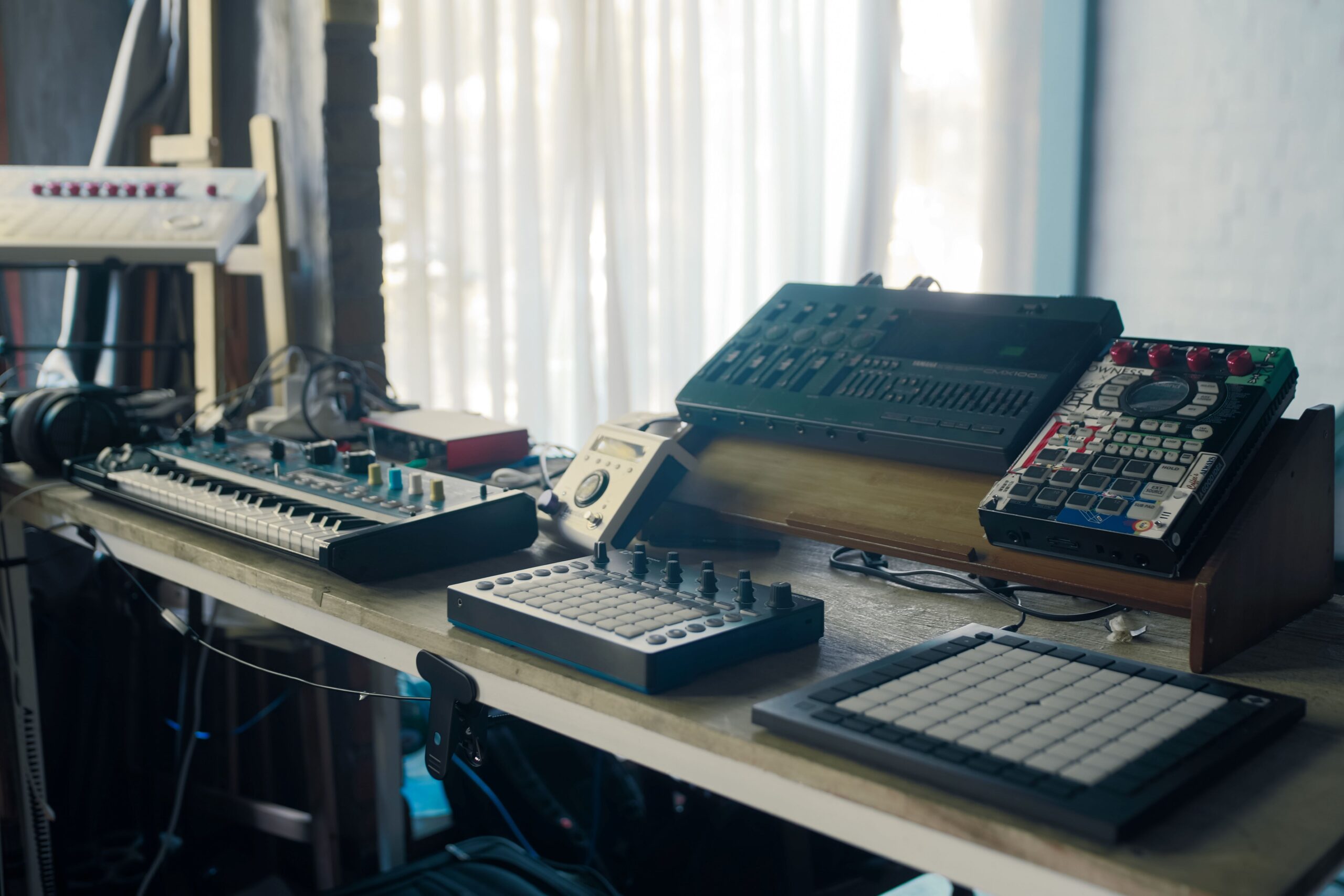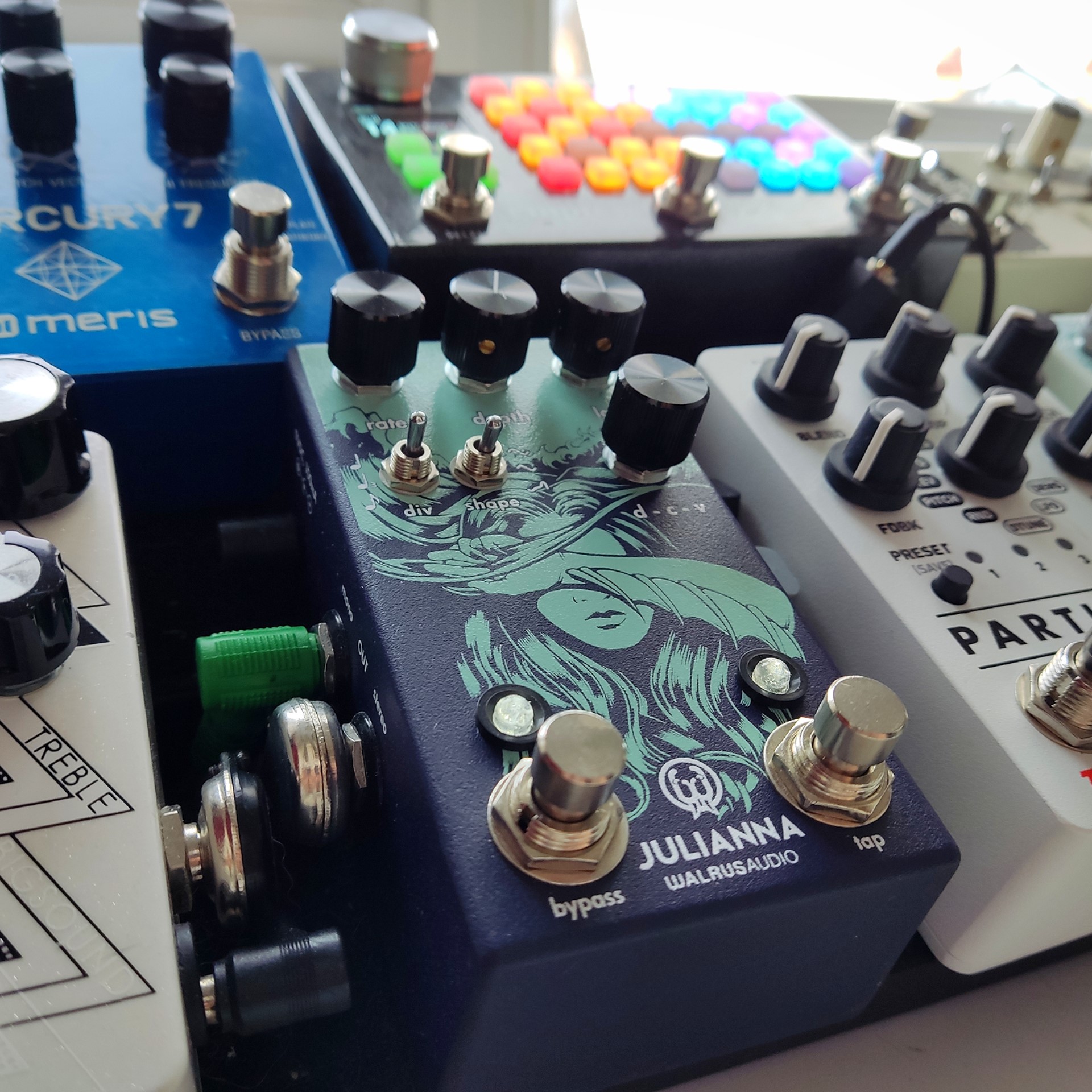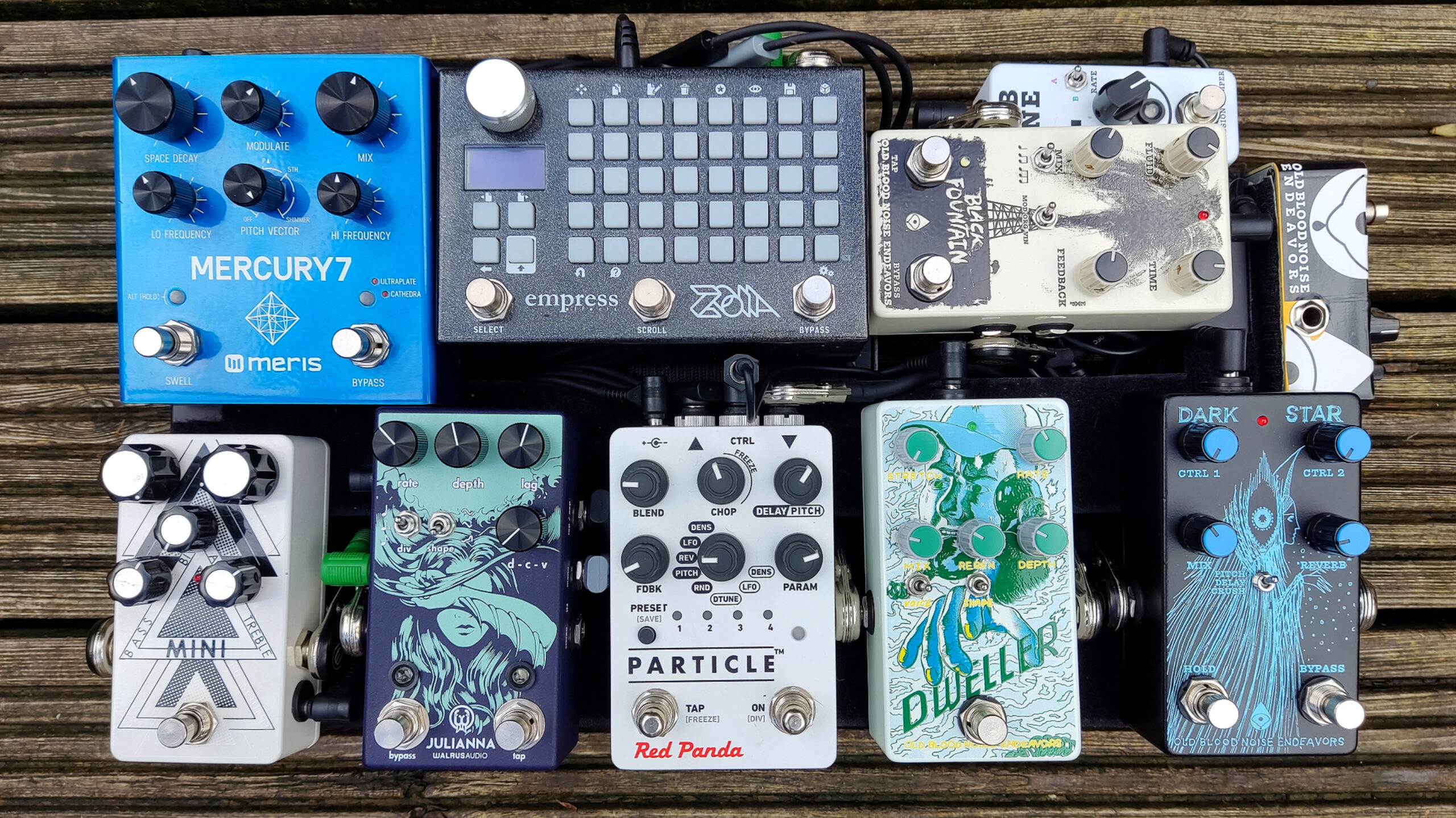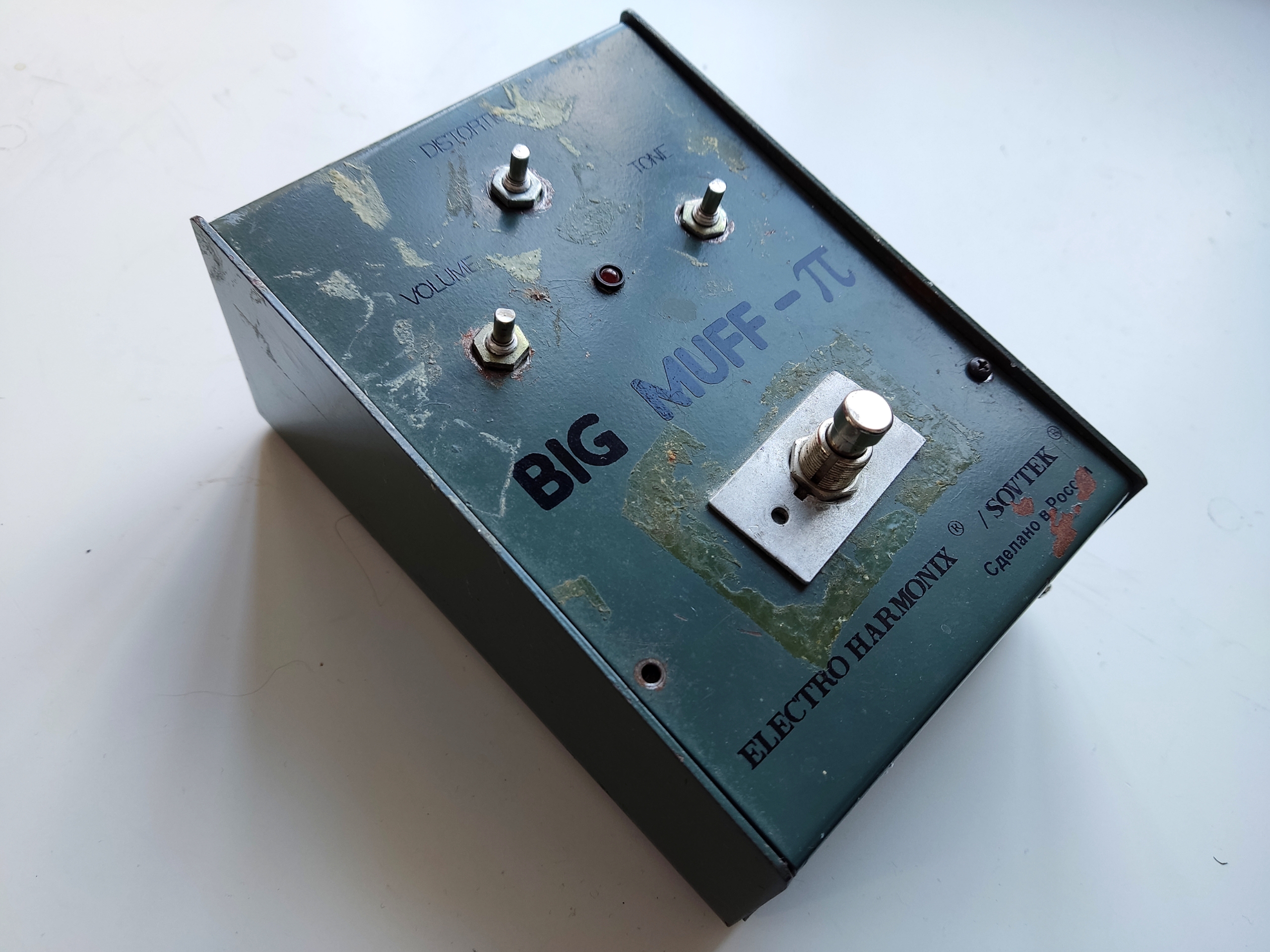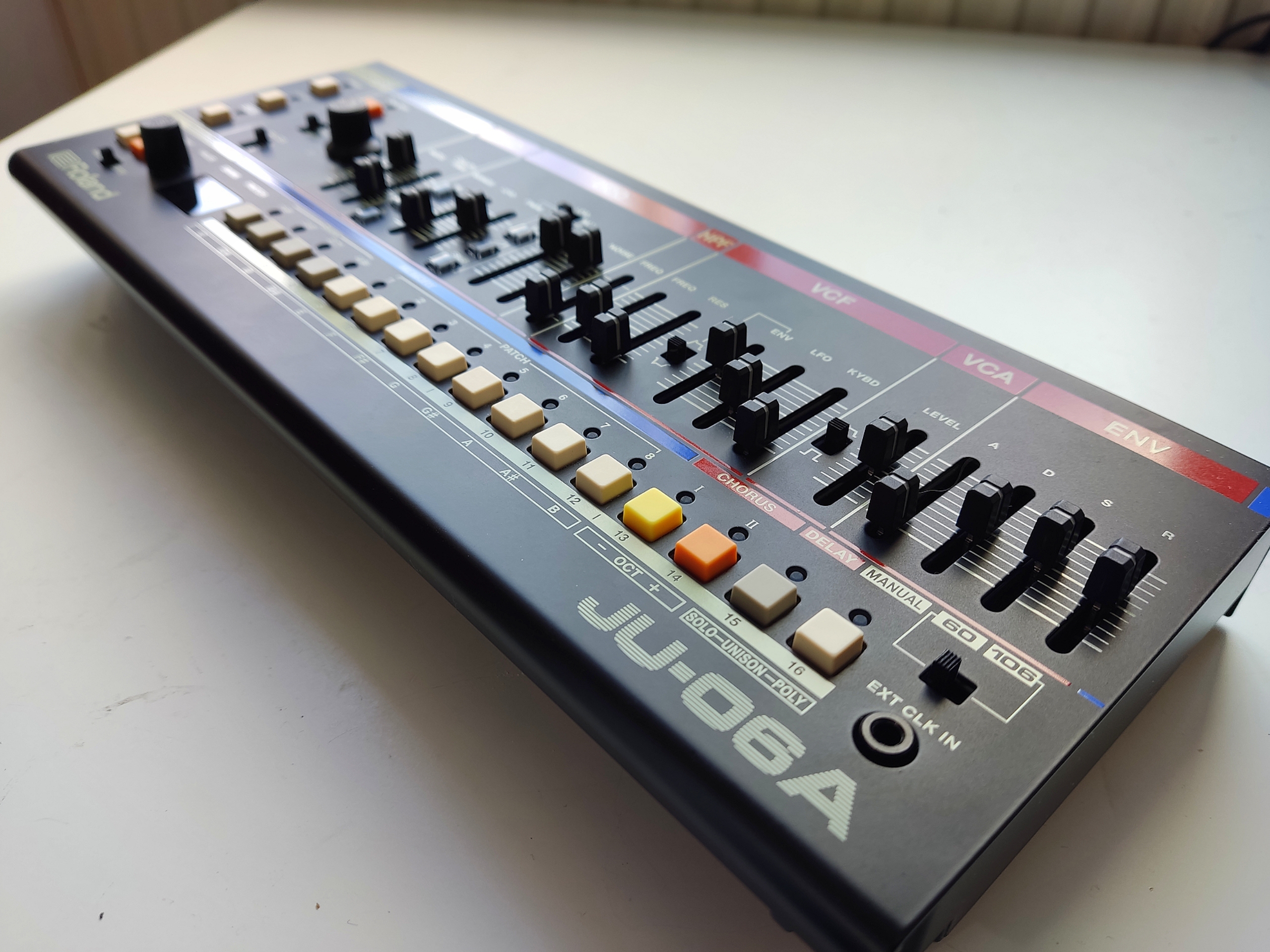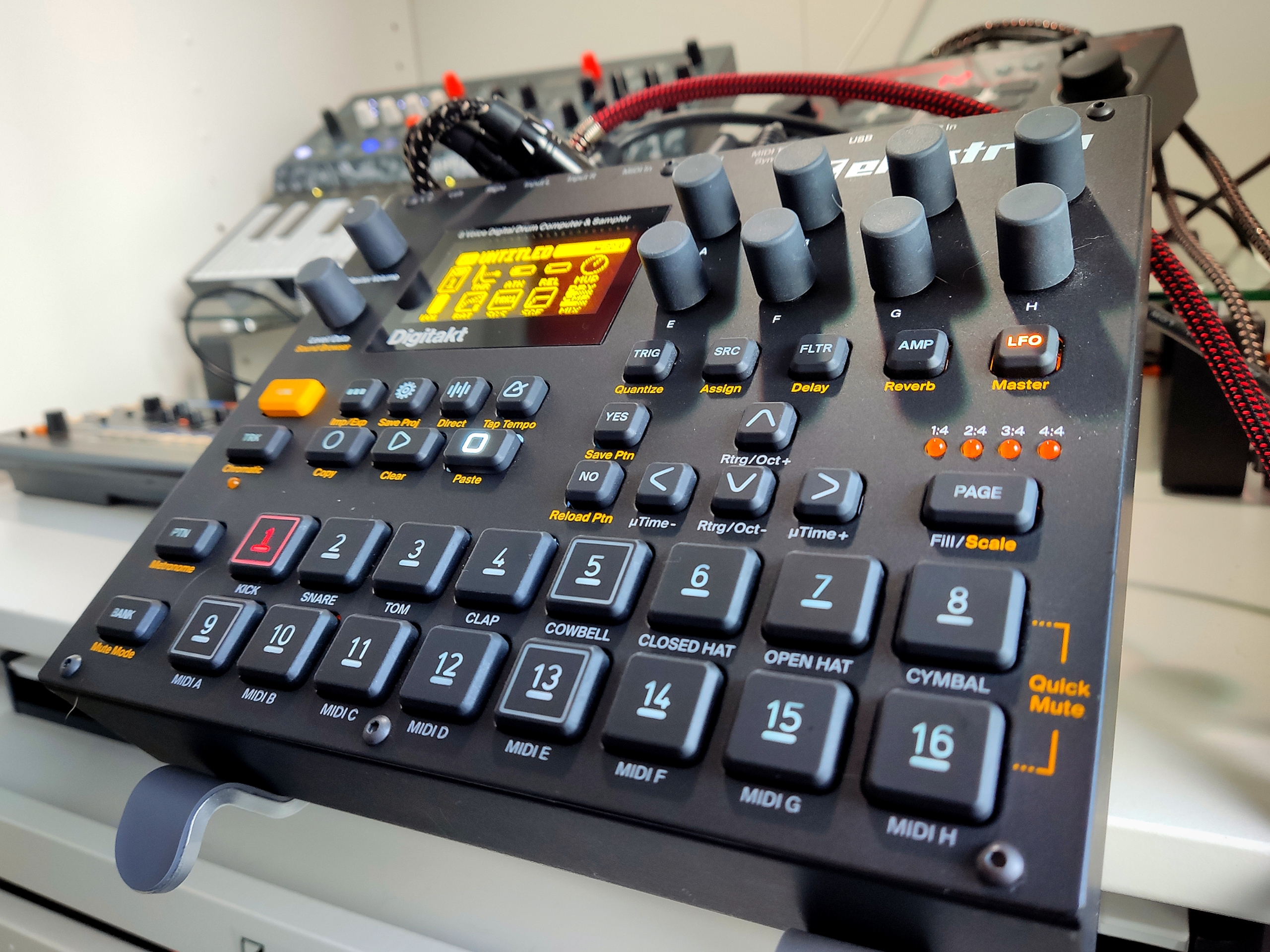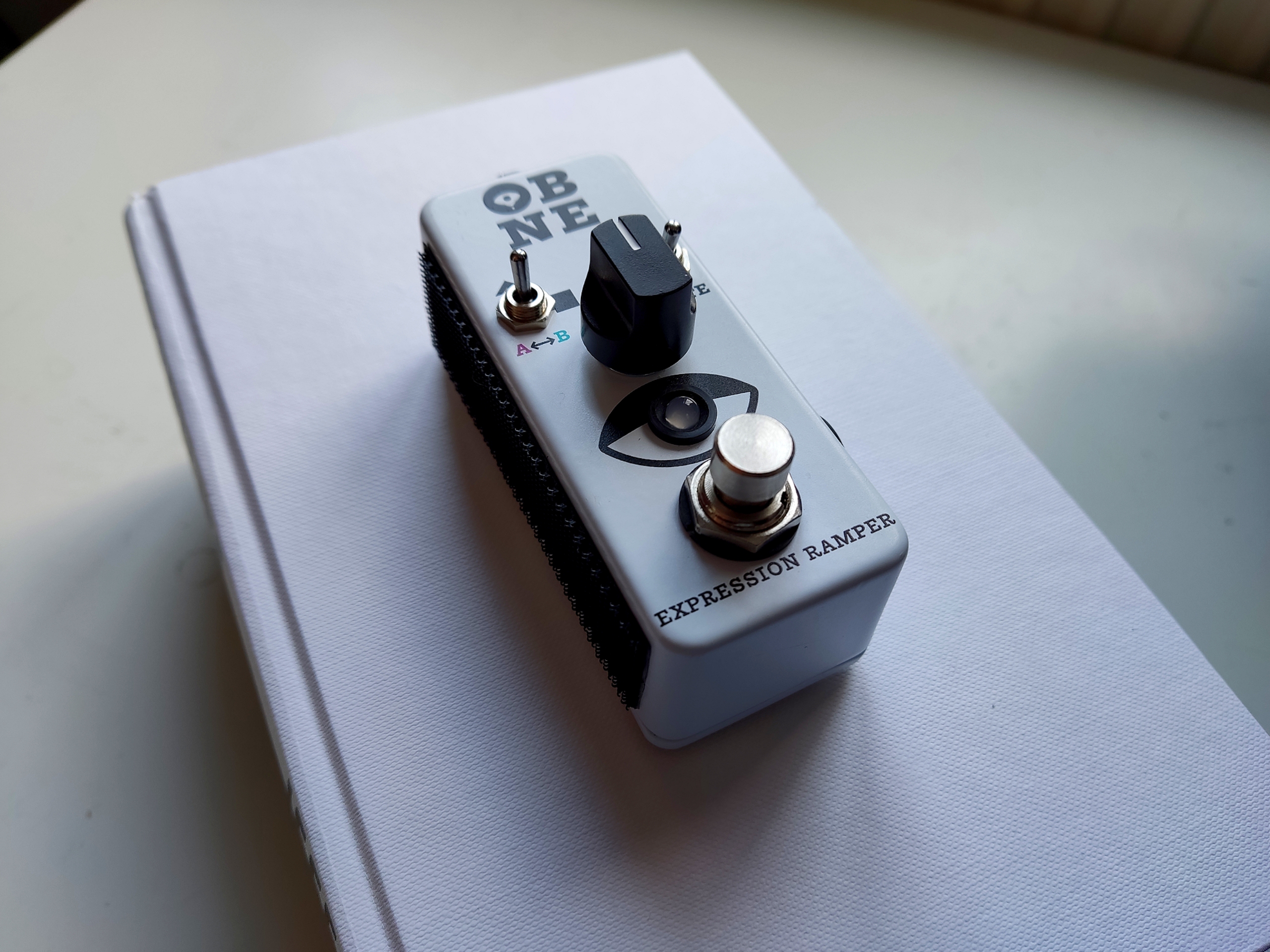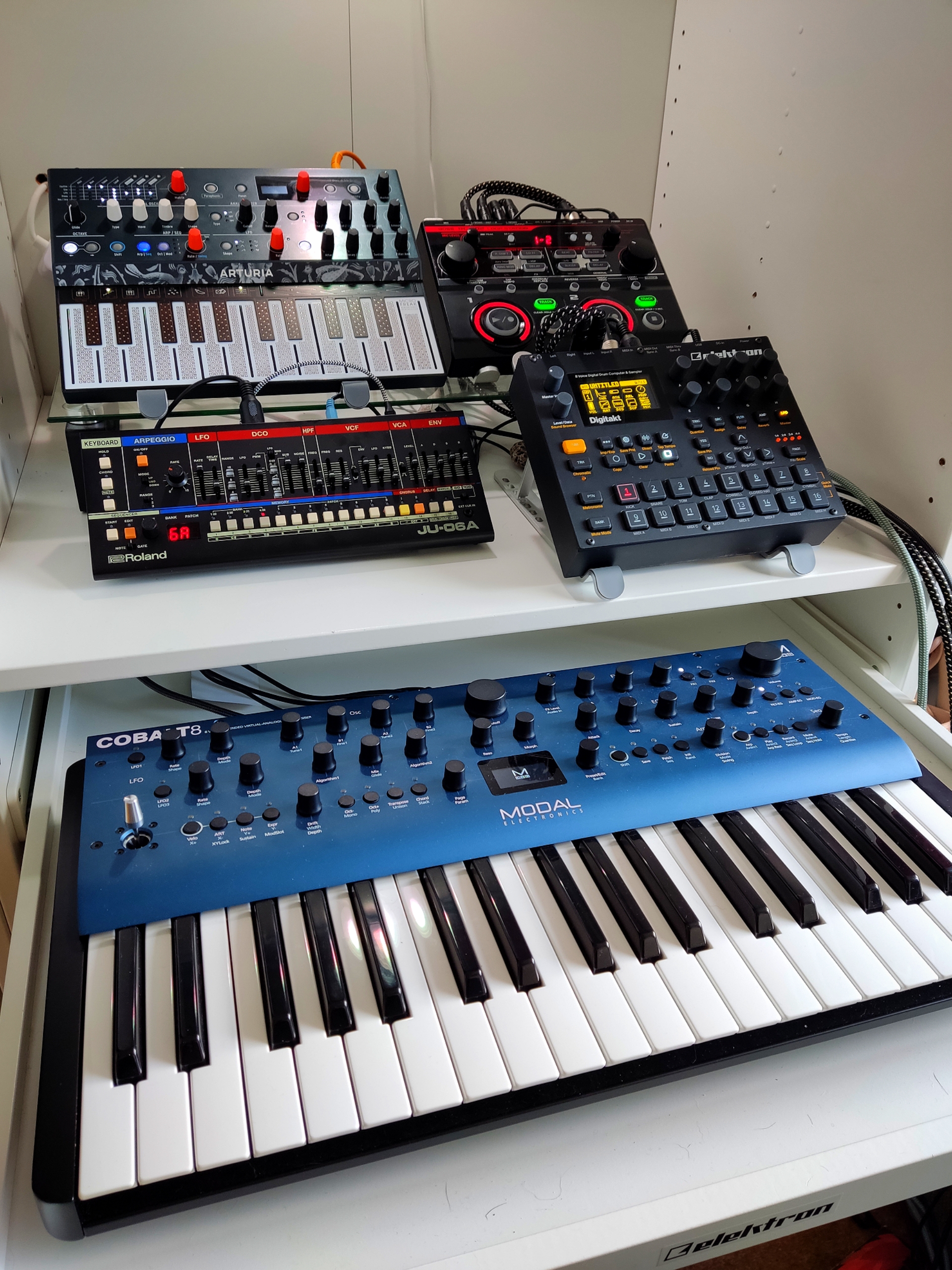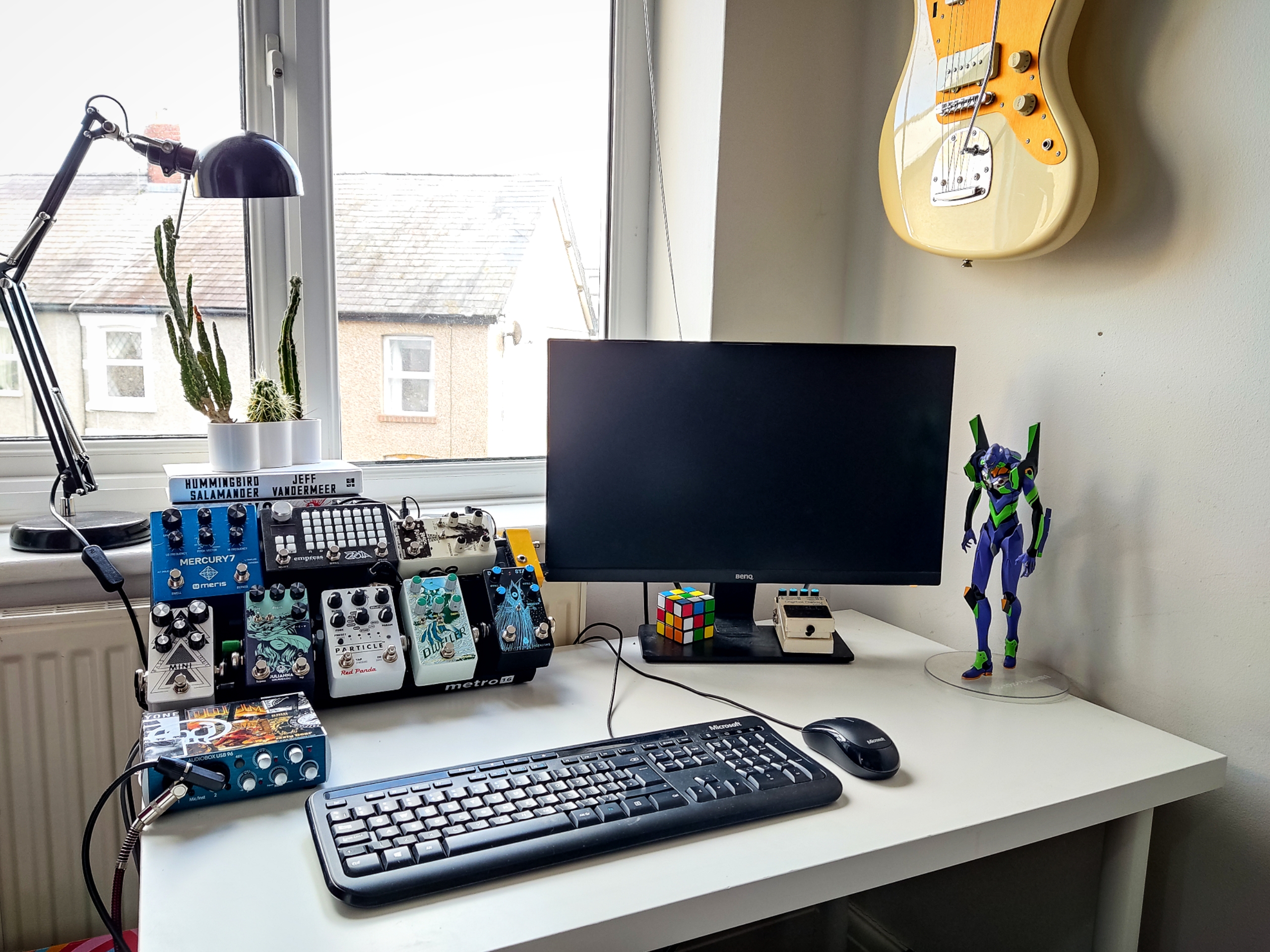1. Favourite knob/fader/switch on a piece of gear and why?
Lots, but one of them is the “Tone” knob on the Desmodus Versio. Try turning that reeeaaally slowly 😉 Also every fader from Gaz’ modules (Big T Music LTD), they just feel so sturdy and smooth!
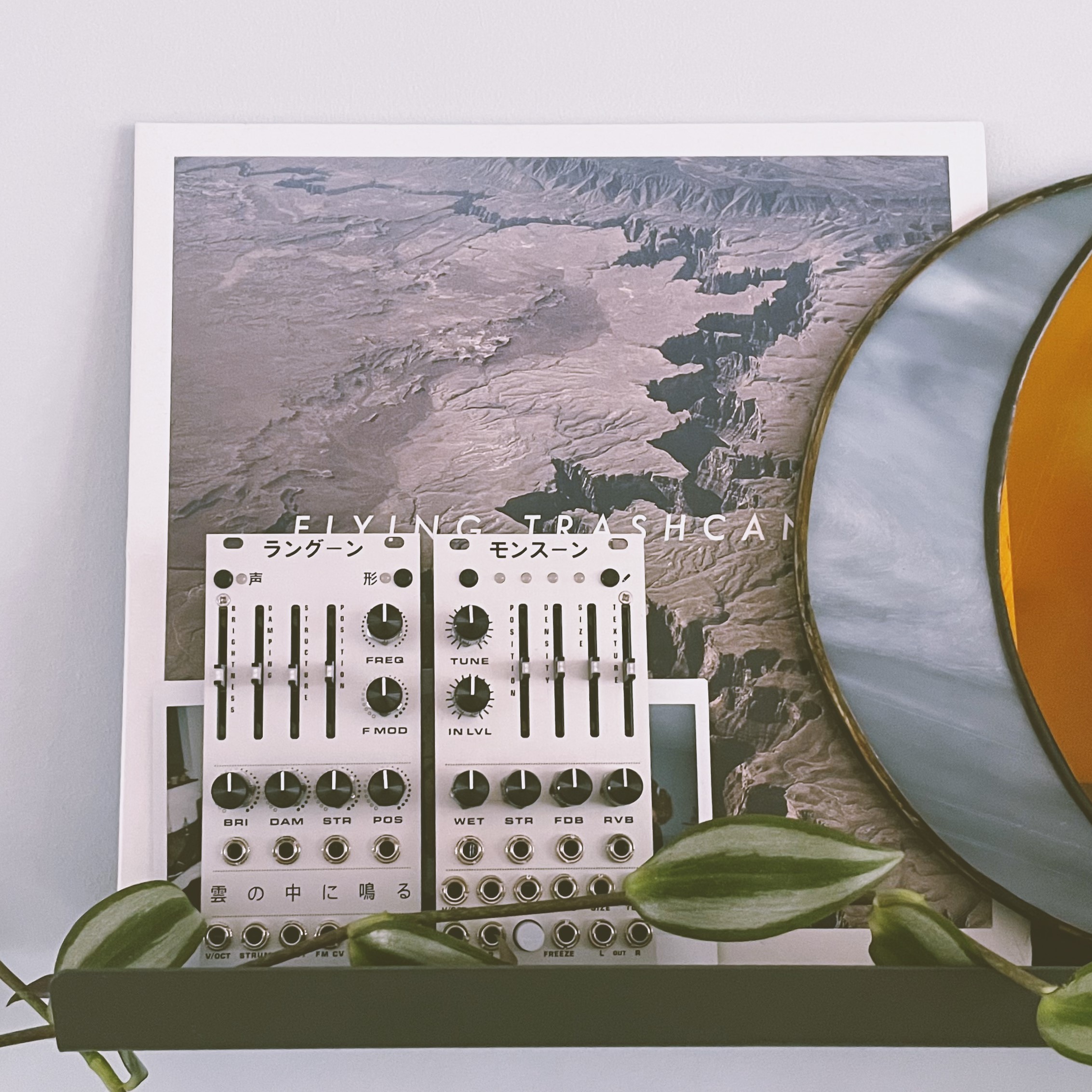
2. Do you have an ‘almost’ perfect bit of kit? What would you change?
This is such a hard question! Well, a bit unexpected maybe, but I’m going for a VST here: Cycles by Slate & Ash. It’s just spot on for me, I could create an entire album using just that. The atmospheres you can get out of there, the subtle movements, the gorgeous effects, the sequencer, the granular part. It’s still so inspiring after 2 years of using it. I also love the Xone 96 by Allen & Heath, this mixer is perfect for my live performances.
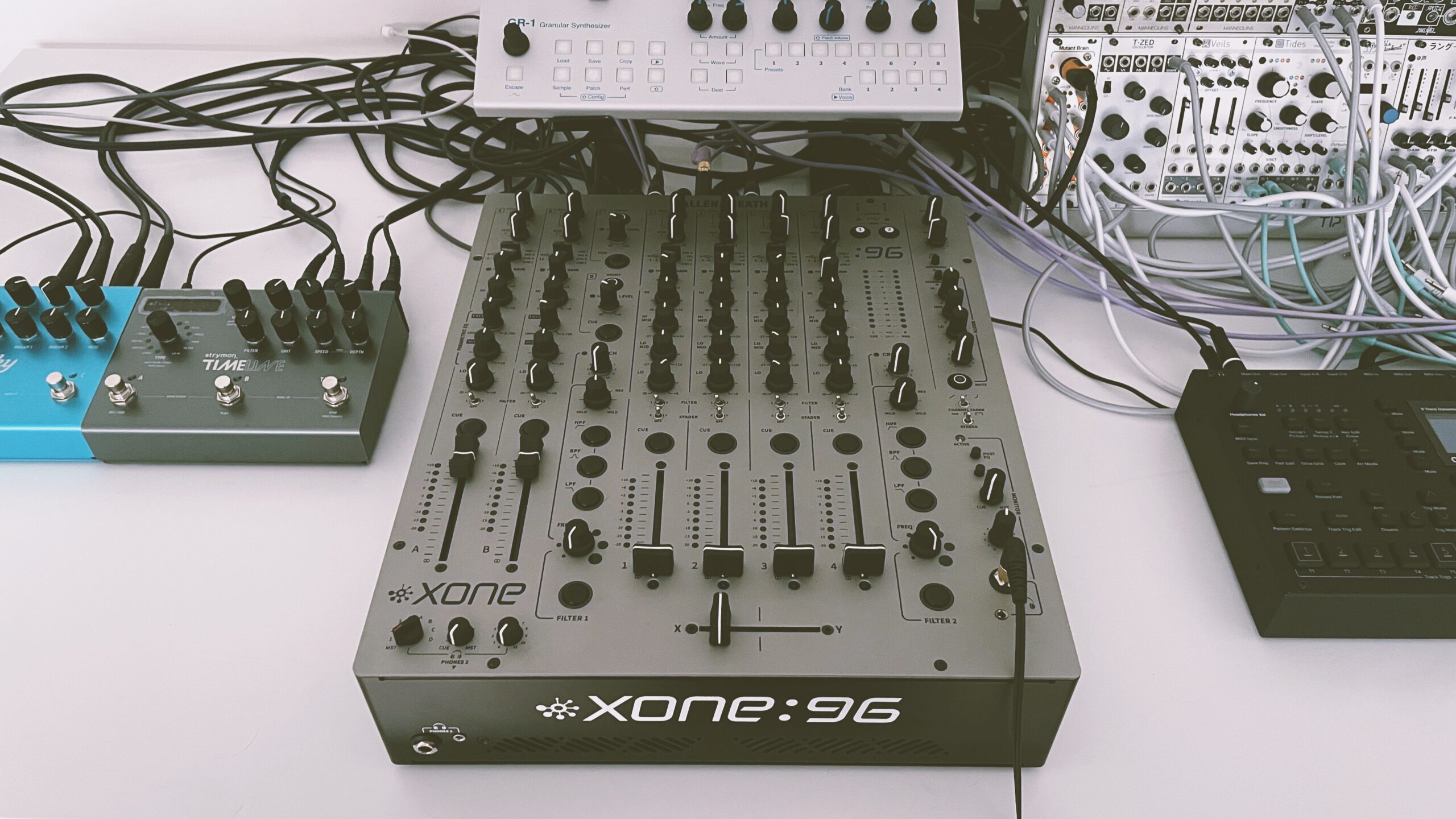
3. What setup do you bring on holiday/tour/commute etc.?
If I have to bring as little as possible I’d bring my Digitone or Tasty Chips GR-1 and Octatrack. But if I’d do a tour I’d probably add something.
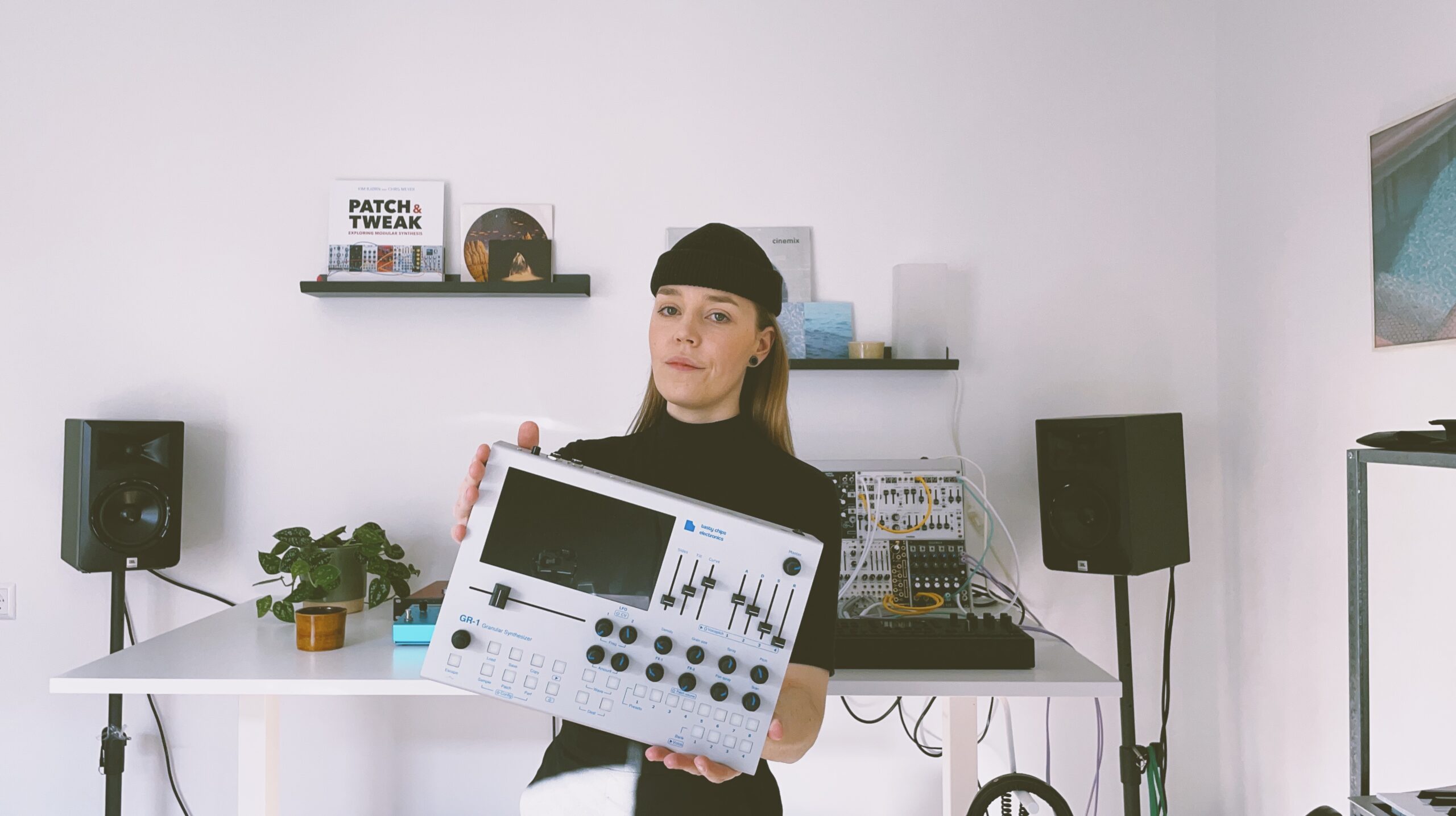
4. What software do you wish was hardware and vice versa?
Paulstretch and definitely Cycles + Landforms from Slate & Ash. Their software is mindblowing! And vice versa: Intellijel Rainmaker.
5. Is there anything you regret selling… or regret buying?
No! 🙂 You can learn something from every piece of gear. If something doesn’t spark joy anymore or stops inspiring you, just let it go. For instance I recently sold my Mannequins Mangrove and Three Sisters and I think many people would have kept them because they’re so hard to obtain nowadays. But that’s no reason for me to keep stuff.
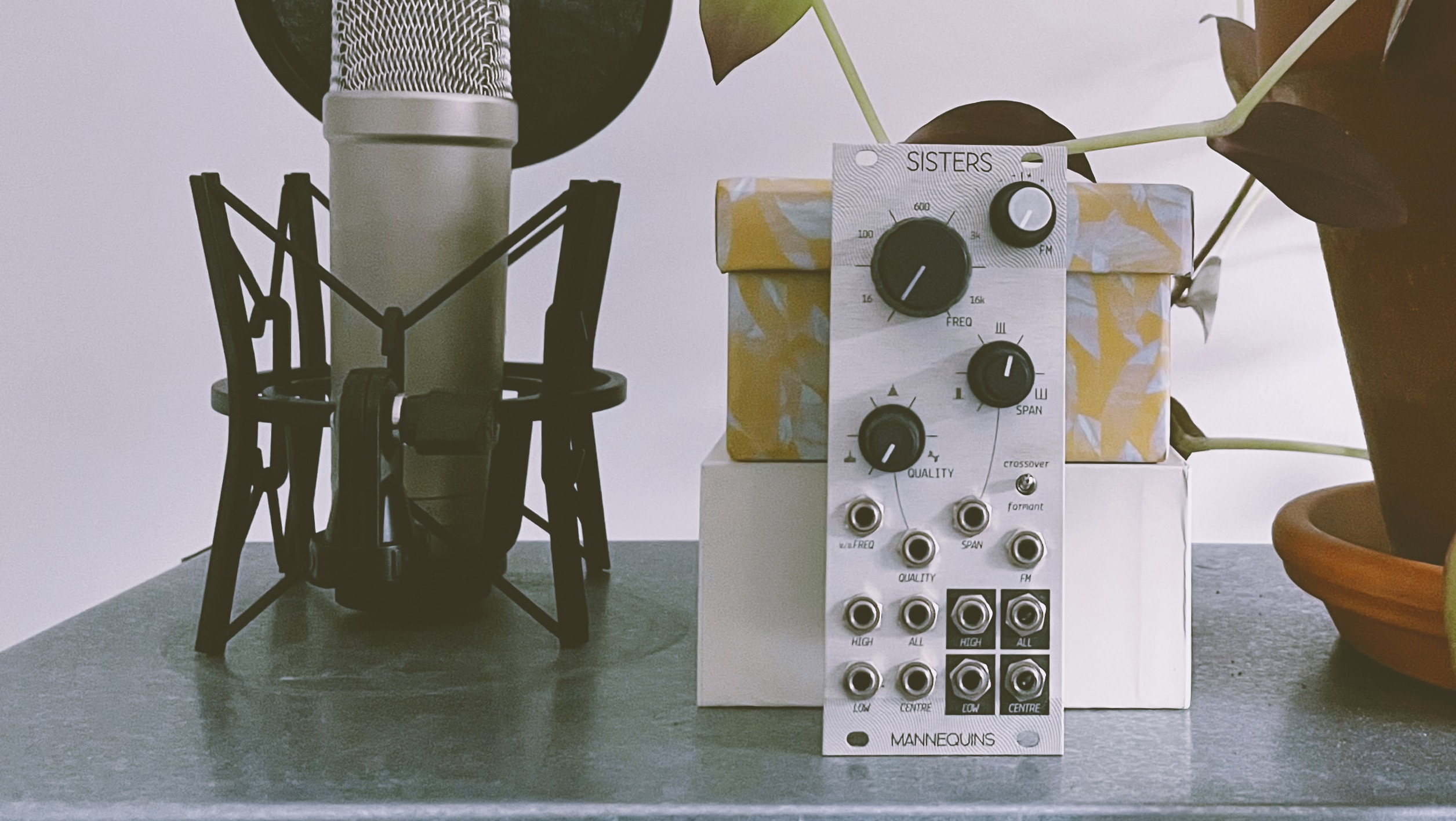
6. What gear has inspired you to produce the most music?
All of my granular modules (Arbhar, Morphagene, Monsoon)! And I’d say that Cycles by Slate & Ash inspired me so much, that it really got me to produce regularly again and to feel creative. It even got me looking into modular again until I couldn’t stop myself from buying the first modules. Since I started with modular I got more and more inspired, especially by the granular modules mentioned above. With these modules, combined with a nice reverb/delay, you can create otherworldly soundscapes which can really carry you away and make you lose track of time. Love that!
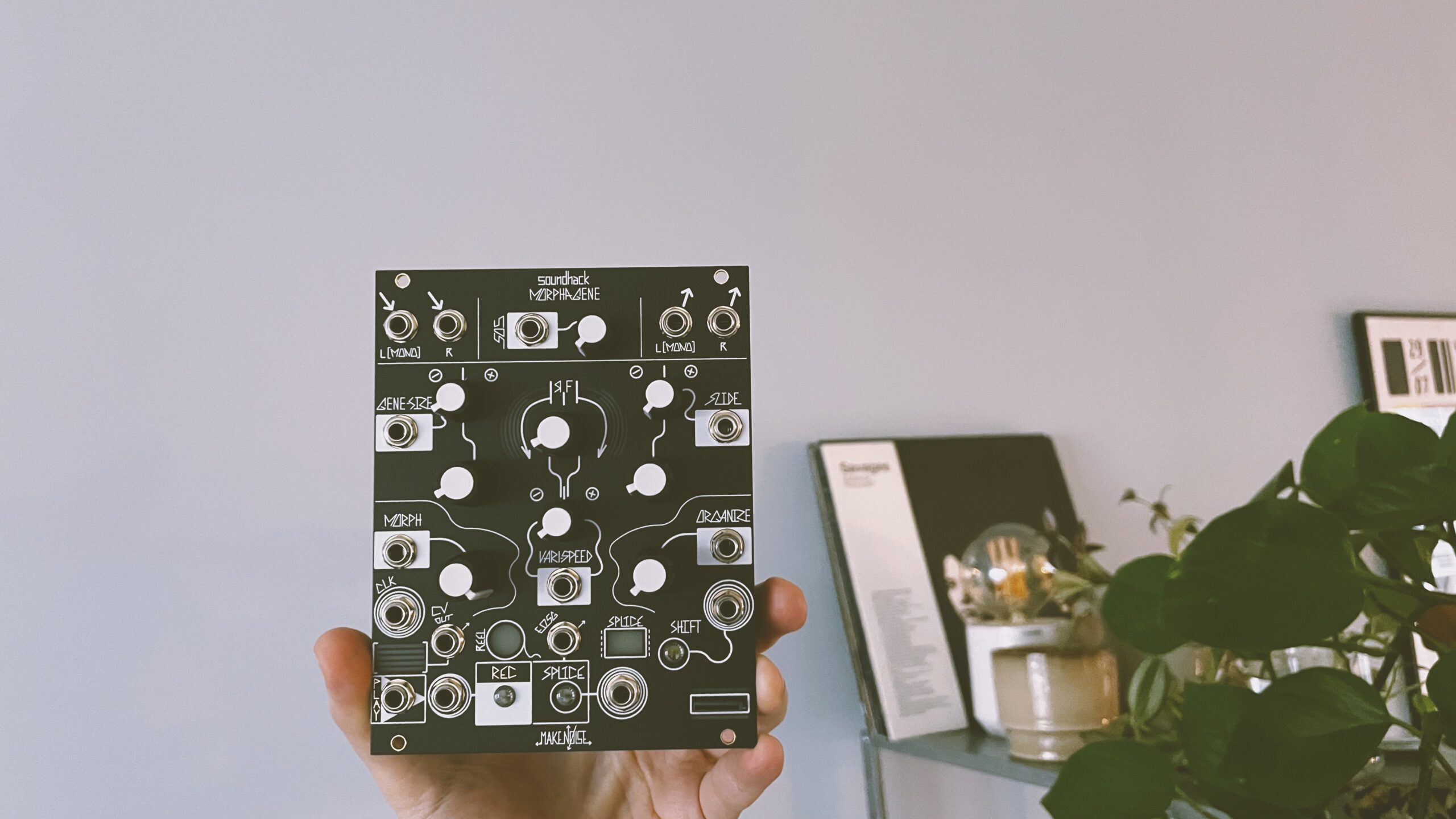
7. If you had to start over, what would you get first?
I don’t think I would have done anything differently, other than getting into modular earlier on. The creativity I get out of that is unbelievable. Oh and I would have put my music out there earlier too.
8. What’s the most annoying piece of gear you have, that you just can’t live without?
Hmm, I would say the Octatrack? No, I think I could live without that (if I have to). Unanswered!
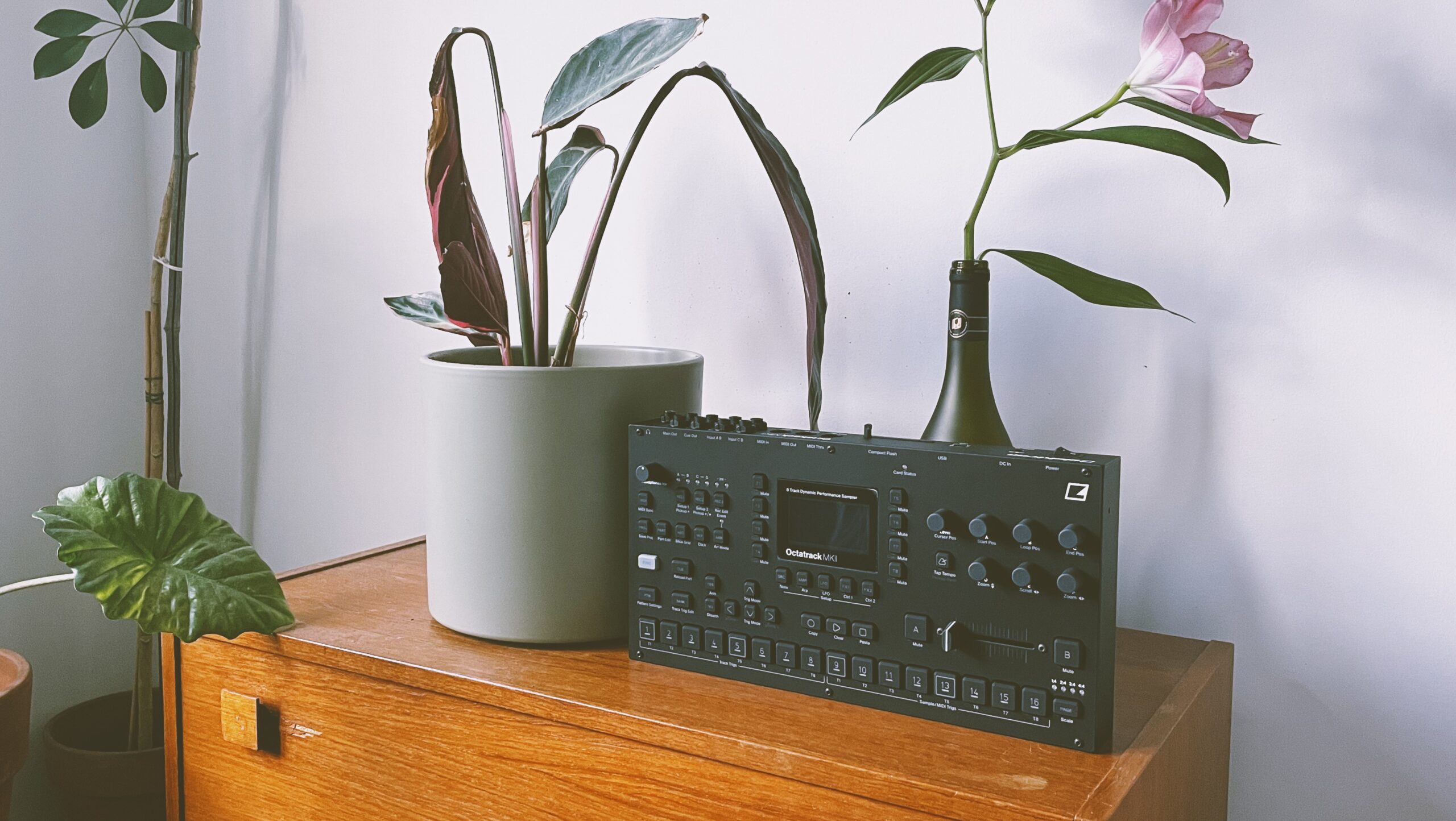
9. Most surprising tip/trick/technique that you’ve discovered about a bit of kit?
My D.O.MIXX (5-channel mixer module by Blood Cells Audio) has 1 aux send. I just recently found out you can switch between pre/post aux per channel, so if you choose pre aux you can cue your channel with headphones. I’ve now routed that aux send to my Xone 96 mixer (on send D) so I can cue every channel of my modular on there and this is huge to me for my live improvs!
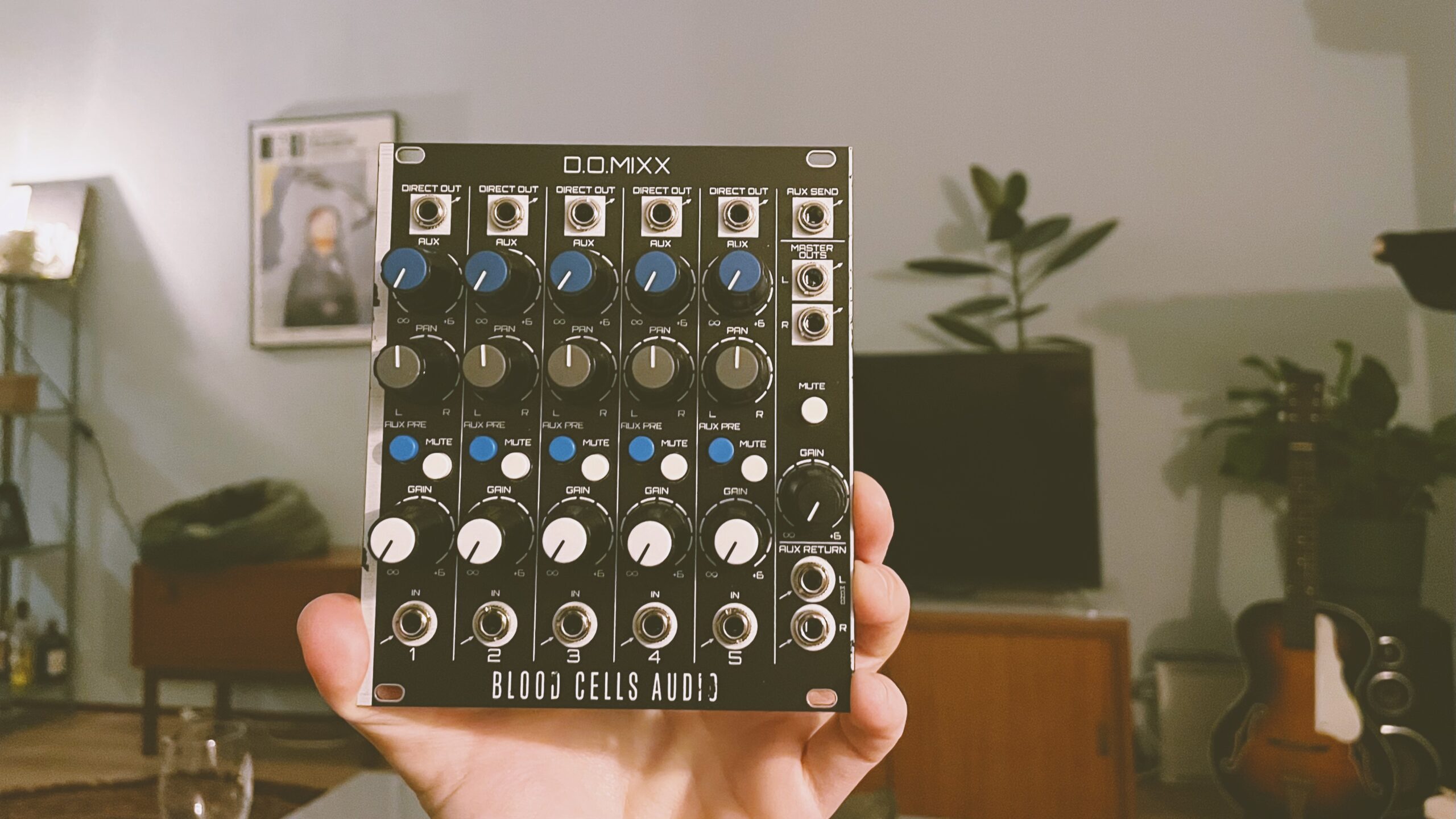
Artist or Band name?
Megan Leber
Genre?
Techno and ambient/electronic (if I have to put a label on it).
Selfie?
I rarely take selfies!
Where are you from?
Rotterdam, Netherlands.
How did you get into music?
I remember I was always drawn to instruments from a very young age. When I was 10 my teacher put a piano (and later a guitar) in the classroom and I was instantly hooked. He taught me some stuff about chords and intervals and let me play after school. Later my parents let me buy my own keyboard from my savings and after that I got my first electric guitar. Never took any lessons, I always played by ear.
When I was 16/17 I got into electronic music production, when I put Reason on my laptop and a whole new world opened up! Soon after that Ableton followed and I got more and more obsessed. Got a few MIDI controllers and my first synth: a Yamaha AN1x. A year of studying Electronic Music Production, a few drum computers, synths and modules later: here I am!
What still drives you to make music?
I just HAVE to, it’s this thing I can’t stop doing. It’s what I love to do most and which will never bore me. As soon as I open my eyes I’m thinking about making music. When it comes to making music I’m a sponge. I always want to know and try more. My mind can be quite chaotic sometimes, but when I’m making music I’m at ease. It gives me this weird (the positive weird) feeling I can’t really explain, like all these endorphins are floating around inside of me. Endless possibilities!
How do you most often start a new track?
It sometimes starts with an idea or feeling in my head, something I want to try out, “what would happen if I do this?”. Sometimes I create a soundscape first, other times I start with a sequence on the Atlantis. What’s important to me is that I can completely lose myself in the sound design and slowly build a “mood”. But I also start without any idea/expectation and just jam.
How do you know when a track is finished?
Intuition. It’s just a feeling of being satisfied with the result. And to be honest there are always things that could have been changed after a track is “finished”. I also have to admit I’m bad at finishing tracks! I’m more of a creator and that’s what makes me happy. As soon as I have to stop creating and start mixing etc, I get bored or distracted and want to make new things… haha.
Show us your current studio
It’s constantly changing! Here’s one of my most recent pictures, just before I hooked everything up again (cables cables cables):
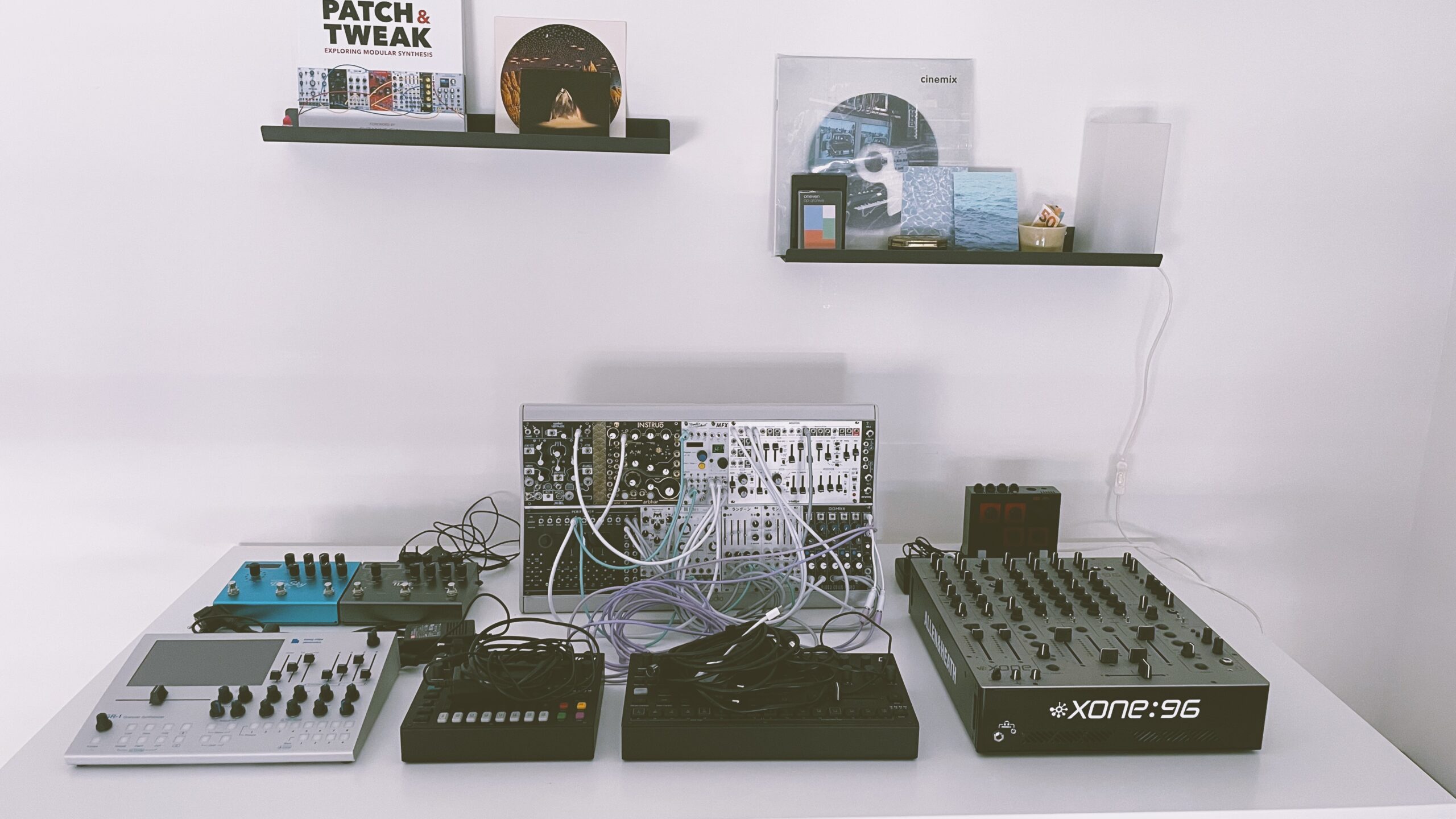
Best creative advice that you’ve ever heard?
Can I also put my own advice here? 😀 Do exactly what you want to do and not what you think others might expect from you. Don’t follow any ‘hype’ because you think you’ll get noticed. Stay true to yourself!
Promote your latest thing… Go ahead, throw us a link
Check out Mystery Circles’ BandCamp on the 5th of June for a nice surprise! 😉 https://mysterycircles.bandcamp.com
[Editor: Megan’s IG can also be found here: https://www.instagram.com/meganleber]
